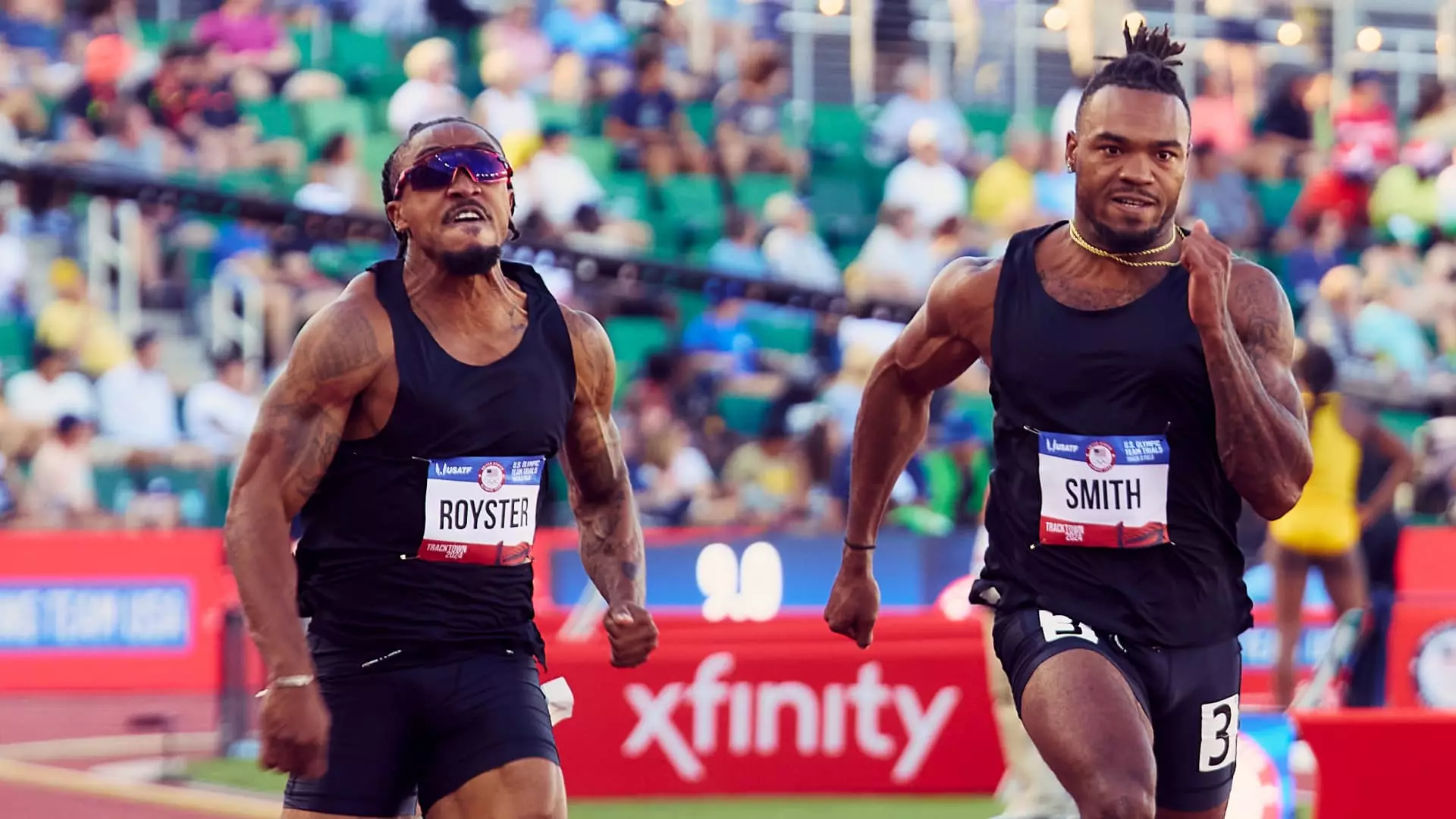The U.S. Track & Field Olympic Trials this year are witnessing a unique phenomenon – a group of 35 unsponsored athletes standing out in all-black, logo-less gear. These athletes are part of Bandit Running’s Unsponsored Project, which aims to revolutionize the traditional sponsorship model for professional athletes and support emerging talents in the field. Unlike the usual practice where unsponsored athletes have to bear the costs of their own apparel featuring major brands’ logos, Bandit Running provides them with all-black kits, warm-ups, and short-term endorsement deals.
Bandit Running’s approach challenges the norms of athlete sponsorship by offering a platform and financial support to Olympic hopefuls without the burden of brand endorsements. Tim West, the co-founder of Bandit Running, envisions a new sponsorship model where brands allocate a portion of their budget to support amateur and sub-elite athletes, ultimately contributing to the growth of the sport. West emphasized that lifting up the grassroots level of the sport can elevate the entire community and create a more sustainable structure for athletes.
The Unsponsored Project’s deals come with a release clause, providing flexibility for athletes who may receive traditional sponsorship offers during the trials. For athletes like Courtney Okolo, a 400-meter runner and former Nike-sponsored athlete, Bandit Running’s initiative offers a sense of support and community in a sport where financial challenges often hinder progress. Okolo highlighted the significant costs associated with training, travel, and competition, making it difficult for many athletes to pursue their dreams without adequate financial backing.
Brandee Johnson, a 26-year-old unsponsored track athlete who qualified for the Olympic trials, represents the struggle of many aspiring athletes who juggle multiple jobs to support their training. Johnson’s participation in the Unsponsored Project signifies a new avenue to pursue her Olympic dreams while aligning with a movement that empowers athletes and inspires positive change. By alleviating financial burdens and providing much-needed resources, initiatives like the Unsponsored Project are reshaping the landscape of athlete sponsorship and opening doors for underrepresented talents.
In a landscape dominated by corporate endorsements and exclusive partnerships, the emergence of initiatives like Bandit Running’s Unsponsored Project marks a shift towards a more inclusive and supportive sponsorship model. By investing in unsponsored athletes and amplifying their voices, brands have the opportunity to foster a community-driven approach to sponsorship that prioritizes athlete well-being and long-term sustainability. As athletes like Courtney Okolo and Brandee Johnson navigate the challenges of elite competition, the support and resources provided by projects like Bandit Running’s Unsponsored Project offer a beacon of hope and a testament to the power of collective empowerment in sports.


Leave a Reply